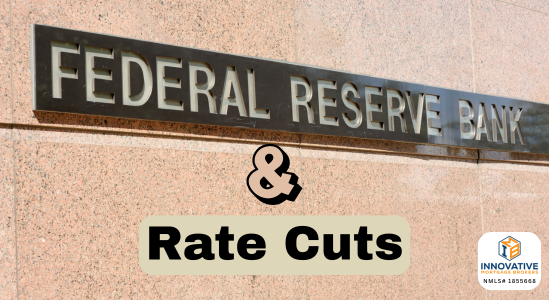See side-by-side loans, real monthly costs, and equity growth in minutes. Buying a home is…
What are Closing Costs?

You’ll need more than the down payment when you buy a house. You’ll also be responsible for closing costs. Knowing how much you might pay and how to lower them can help make it easier to buy a house.
Closing costs are necessary to cover the cost of buying the house. Fortunately, you have options when paying them. Here’s what you must know.
Who Pays Closing Costs?
First, both buyers and sellers pay closing costs. They cover different expenses and vary by lender, loan amount, sales price and location.
In your sales contract, you can negotiate who pays the closing costs and how much each party pays. But knowing the general cost of closing a loan can help you determine how to negotiate.
Buyers’ Closing Costs
On average, buyers pay 2% to 5% of the loan amount price in closing costs. The closing costs are negotiable, and as we said earlier, you may get help from the seller.
Buyers’ closing costs cover the lender fees and any third parties involved in the transaction, such as title companies and local municipalities for transfer tax.
Closing costs vary by lender, but here’s, on average, what you can expect as a buyer:
- Origination points – Some lenders charge all their closing costs in the origination fee. The fee is a percentage of your loan amount, such as 1% or 2%, and may encompass all lender costs or only some.
- Discount points – If you want to lower your interest rate, you may need to pay discount points, which are a percentage of your loan amount. The amount 1 point lowers your rate varies by lender, so discuss this option with your lender to see if they are worth paying.
- Credit report fees – All lenders must pull your credit reports from all three credit bureaus and usually pass the fee on to buyers.
- Appraisal fees – All lenders also require an appraisal. It’s how they determine if the home has enough collateral for the loan. Home appraisal fees vary from $500 – $1,100 depending on the area and size of the house.
- Title search and insurance – To secure mortgage financing, the lender must ensure the home has no liens. If desired, the title search and subsequent insurance to protect the lender (and homeowner) is another closing cost for buyers.
- Home inspection – Lenders don’t require home inspections, but they’re highly recommended. Home inspectors look deeply into the home’s inner workings, informing you if anything is wrong. Home inspections cost an average of $500.
- Escrow – if you’re required (or want) to set up an escrow account, you must set aside a few months of real estate taxes and homeowner’s insurance to cover it. The amount you must put in varies by your total amount due and the due date.
- Upfront mortgage insurance – If you borrow a government-backed loan, you may pay upfront mortgage insurance. FHA loans for example charge 1.75% of the loan amount.
Sellers Closing Costs
Sellers don’t have the same closing costs as buyers and have less flexibility in what they pay.
The largest closing cost sellers pay is the real estate commission. It’s usually 5% – 6% of the sales price, but it varies by agent, and sellers may be able to negotiate the cost.
Other closing costs sellers may pay include:
- Title fees
- Transfer taxes
- Recording fees
- Buyer incentives
Sometimes sellers offer seller concessions to help buyers with their closing costs. This is most prevalent in a buyer’s market when there are more sellers than buyers. Motivated sellers may offer to help buyers with the closing costs to help them close faster (and make the sale).
How to Lower your Closing Costs
If you’re buying a house, but worried about the closing costs, here are some ways to lower them.
Shop Around
Don’t take the first mortgage you get pre-approved for. Instead, shop around to get the best deals. Compare offers from different lenders and see who has the best offer. Sometimes a slightly higher interest rate with lower closing costs makes sense, and other times it’s the opposite. Look at the total cost of the loan to decide what’s right for you.
Ask the Seller for Help
Most loan programs allow sellers to contribute up to a certain amount of your closing costs. The seller doesn’t pay the funds out of their own bank account. Instead, it comes from the sale proceeds.
Often, sellers increase the sales price slightly to cover your closing costs and still profit from the sale. This means your mortgage payment will increase slightly, but you’ll need less money upfront at the closing.
Consider Lender Paid Closing Costs
Some lenders will offer a no-closing cost loan in exchange for a higher interest rate. To determine if it makes sense, compare the loan’s total cost over its entire term. Will the higher interest rate cost you much more than the closing costs upfront?
Consider how long you will stay in the home to determine if it makes sense. If you stay there for the long term, it might cost more to have a no-closing loan than if you don’t intend to stay there long.
Final Thoughts
Closing costs are a part of every loan, no matter who pays them. There are costs to process your loan and get you to the closing table.
If you don’t have the extra 3% – 5% to cover your closing costs, consider the options to help lower your out-of-pocket costs. You have many ways to cover the closing costs, including negotiating with the lender. Some closing costs are optional, and others are the same no matter where you look.
The key is finding the most affordable loan for you without requiring you to deplete your savings and not have enough money to maintain your home once you move into it.
As mortgage brokers, we understand the importance of finding the right mortgage for every individual. We provide personalized services, such as examining your financial picture and credit history to find you a home loan that meets your needs. Our goal is to provide you with unbiased advice and help you shop around so you can make the best decision possible. We have a wealth of experience in the field and our customers benefit from having a knowledgeable point-of-contact throughout their process. With our expertise, you won’t have to spend time researching lenders or comparing rates on your own – we will work hard to get you favorable terms while ensuring that all of your questions are answered along the way.




